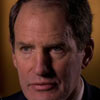Paul Krugman Princeton University; The New York Times

Completely aside from the current crisis and whatever deficit spending we do now, you look at the long-term Congressional Budget Office projections, they look terrible; they look impossible. It's clear that they show spending on the autonomous programs -- Social Security, Medicare and Medicaid -- rising to levels that clearly cannot be financed. And so something has to give.
The thing about it, though, is that you really need to be very careful in understanding what is driving those projections. And people talk about Social Security, Medicare and Medicaid [as] one word, and then treat it as if it was all Social Security. Social Security, it's very simple: It's demography. Basically, the baby boomers are heading for retirement, and we're going to have a much higher ratio of recipients to workers paying into the system.
There's a little bit of that on Medicare and Medicaid as well; they also tend to disproportionately benefit the elderly. But if it was just demography, it would be a medium-sized problem, 3 or 4 percent of GDP eventually of extra spending. Not minor -- that's a lot of revenue that we need to make up, or some significant benefit cuts or something -- but not killing, not something that you would say, "This is the end of the world."
What's driving the thing is health care costs, and it's the projection that health care costs per recipient are going to continue to rise much faster than per capita income forever. ... Resolve the health care crisis, and most of the fiscal thing goes away.
I don't think that the sort of I.O.U.S.A., Pete Peterson thing -- I think it's fundamentally misrepresenting the nature of the beast. The problem is not that we've made too many promises; it's not that we have an aging population. The problem is that we haven't figured out, across the board, how to deal with technological progress in medicine, which always makes it possible to treat more things and, combined with our highly inefficient health care system, leads to this huge burden.
Gene Sperling Director, National Economic Council, 1996-00
I think there are ways that the next president can do some of the long-term goals people would like in a way that can be good for fiscal discipline. Universal health care, I think, is the best example. Yes, it will cost more money to provide the subsidies to allow almost all Americans to get universal coverage. But if it's done at the same time that we're reducing the cost shifting, reducing all the waste in our health care system that comes from having health care companies spend so much time figuring out how to exclude people instead of cover people, chronic care management, prevention, all of those things, then we can achieve one of these important social goals like universal health care. ... If you bring down health care spending growth for the country as a whole, then Medicare and Medicaid will go down naturally, and that will be the most important thing we can do for our long-term fiscal future.
James Galbraith University of Texas at Austin

Health care is a problem of health care. It is not a problem per se of Medicare or Medicaid. It is not a problem of the federal budget. It is a problem of the whole system. ... A large part of the population doesn't have insurance, and that part of the population often ends up, by the time they get old enough for Medicare if they're lucky, with chronic conditions that might have been avoided, which greatly increase the cost of providing care.
Diabetes is an example. Ten percent of U.S. health care expenditures are for diabetes. Now, if you have untreated, inadequately treated diabetes, or diabetes that could have been avoided that wasn't avoided, by the time that person gets to a certain age that's a very expensive medical proposition. ...
... I know you've had a chance to review the figures that [the Peter G.] Peterson nonprofit and David Walker propose. When you look at it in terms of Medicare and Medicaid, do you quarrel with those figures?
Oh, sure.
How? Why?
Well, in the case of health care expenditures, the underlying assumption there is that the share of health care costs in GDP is going to rise basically indefinitely; it's going to rise for 30 or 50 years. ... But when you think about it as a reasoned proposition, you've got to recognize that's not going to happen. The rest of the world is going to be spending 10, 12 percent of [GDP] on health care; maybe it will go up to 13 or 14. How would we as an economy with 300 million people be spending 30 percent on health care? Doesn't make any sense.
I like to say if that were the case, if it happened, we could buy the entire city of Paris, including the Louvre, the Saint-Chapelle and the Notre Dame Cathedral, move our elderly population over there en bloc, let the French doctors treat them, and have enough left over to buy everybody a villa in St. Tropez. I mean, these are numerical propositions which you can get out of a computer, but they aren't going to happen in real life.
David Walker U.S. Comptroller General, 1998-08; President and CEO, Peter J. Peterson Foundation
We need to make changes to Medicare and Medicaid separate and distinct from whether or not we engage in comprehensive health care reform. At the same point in time, we do need to engage in comprehensive health care reform. The idea that you don't do anything with Medicare and Medicaid until you have engaged in comprehensive health care reform I think is wrongheaded. ...
A lot of people don't realize we have a lot of middle- and upper-class welfare going on in Medicare and in our tax system for health care. So one of the places we could start is eliminating middle- and upper-class welfare.
You have said that older Americans are staying healthy longer, and they are getting health care treatments without much control in spending. If you're a senior citizen, you get health care under Medicare and Medicaid, and there are no controls.
... We are the only country on the face of the earth that is dumb enough to write a blank check for health care. Even countries that have socialized medicine cradle to grave, like Sweden, they don't write blank checks for health care, because they know it would bankrupt the country.
Ultimately, we're going to have to achieve four things in comprehensive health care reform: universal coverage for basic and essential health care; a budget for what the federal government will spend on health care; national, evidence-based practice standards for the practice of medicine and issuance of prescription drugs; and increased personal responsibility and accountability for our own health and wellness.
There's a lot of details below that, but those are the four pillars of comprehensive health care reform. If we apply them, we not only will spend a lot less money than we otherwise would spend, we can keep from bankrupting America.
Allan Hubbard Assistant to the President for Economic Policy, 2005-07
Our system is a third-party pay system. Most people get their health care either through their employer-paid health insurance or through government-paid health insurance, or some sort of health program. So when we go to the doctor, go to the hospital, we act as if the service is free. When's the last time you actually shopped for a medical service? When's the last time you shopped hospitals before you got an MRI and found the least expensive MRI? When's the last time you shopped seeing a doctor for some procedure and compared prices, compared services, compared quality? It just doesn't happen, and that's because we consume it as if it were free because there's a third party paying for it.
Now, there are two big problems with consuming it as if it were free. Number one is, we overconsume. If you thought that food were free when you went to the grocery story, it was already paid for by your employer, you would buy a lot more than you needed, and you would buy expensive steak, caviar, etc., a lot more than you buy today. ... And the second problem is the consumer does not put pressure on the provider to control costs.
Newt Gingrich Speaker of the House of Representatives, 1995-99
Let me give you an example that I find fascinating. In LaCrosse, Wisc., the Gundersen Lutheran Hospital system is, according to the Dartmouth [Atlas of Health Care], the least expensive place in America for the last two years of life. They have an advanced directive program, and over 90 percent of their patients have an advanced directive. They have electronic health records, so everybody on the staff knows what the advanced directive is. They have a very strong palliative care program for using drugs to manage pain. They have a hospice program.
The result is today, the last two years of your life in costs are about $13,600. The last two years of your life at UCLA are $58,000. Now, why should Medicare pay $58,000 for the same outcome if it could pay $13,600? You can say, well, Los Angeles is more expensive; they do a couple of more complicated things. So fine. So let's say it ought to be $20,000 at UCLA. That's still [$38,000] less than it currently is. ...
We don't think the politicians can ever fix this because the hospital lobby is so powerful, and the doctor lobby is so powerful, and the pharmaceutical lobby is so powerful, and the medical technology lobby is so powerful. You're not going to politically solve this, but if I could empower you to know that, people start making choices. We know, for example, that if a doctor knows price, 60 percent of the time they will prescribe the less expensive drug, just because of their common sense. It's practical. We know that people are willing to look at practical outcomes.
And we also know -- this is the great irony -- the best places in America are always less expensive than the worst places. Health is not like jewelry and automobiles. In jewelry and automobiles you pay a lot more to get a lot better. In health, because the best places do it right the first time, they do it very efficiently, they pay real attention to quality, they're actually less expensive than the places that are bad.
Paul Ryan Ranking Member, House Budget Committee (R-Wisc.)

Health care is 16 percent of our economy, but it doesn't operate like the rest of the economy. The rest of the economy, producers compete based on price, based on quality, and the manufacturer who has the best price and the best quality wins the job. ...
I propose to set up a similar system where we have standard metrics in health care on price and quality, and all the health providers commit to using these metrics so we as consumers can see what things cost and who is good and who's bad. Where is the best hospital to get my hip replaced? What is it going to cost? We need to bring those free-market dynamics ... into the health care system.
Peter Orszag Director, Office of Management and Budget
You have famously said health care reform is entitlement reform.
I don't know if it was famous, but I did say that.
Lots of people quote it. But they quote it with puzzlement because they're not sure what you mean. ... Are you saying that what you really want to do is work with the health care system and make dramatic changes in that and thus reduce costs, and leave Medicare and Medicaid alone in terms of benefits and in terms of taxes that will have to be dealt with that? Or are you saying we're going to wade into entitlements, and we're going to start considering some cuts?
The budget includes $300 billion in Medicare savings already, so we are wading into Medicare and Medicaid. Actually, let me try to explain this, because I think this is absolutely central to what we face.
We need to make changes to Medicare and Medicaid. We particularly need to create better incentives for providers to deliver high-quality care, because right now the incentives that we have in our health care system is for your doctor or your hospital just to provide more care, and that's not always better care. Spending more time in the hospital or having more tests or seeing more specialists doesn't necessarily mean better care, and that's what all of the evidence suggests.
They need, those hospitals and doctors, incentives to deliver better care. That can be started through Medicare and Medicaid, but in order for it to be sustainable, it needs to spread throughout the whole health care system, because if all we did was reduce the growth rate in Medicare and Medicaid, and health care-cost inflation continued in the rest of the system, you'd create massive access problems under Medicare and Medicaid. It wouldn't be sustainable.
So what we need to do is start with Medicare and Medicaid, but do so in a way that affects the overall rate of health care-cost growth. Now, let me give you an example: In the early 1980s, Medicare moved to ... a fixed payment for each hospital stay. It created an incentive for hospitals to shorten the number of days that Medicare patients spent in the hospital because they were only getting paid a fixed amount -- not per day. The result, though, was shortened hospital stays not only for Medicare patients but for everyone, because it changed the way hospitals practice medicine. That is what we need to do. ...
David Leonhardt The New York Times

Peter Orszag wants to talk about efficiencies, ... wants to talk about attacking the larger medical system and stay away from the idea that your Medicare and Medicaid are going to have to change. ... Do you think eventually they're going to have to address that with the American people?
I do think they'll have to address it, but I don't think they will necessarily have to go and say, "This is what you now get; we're cutting it." That isn't where the solution to this lies. Where the solution to this lies is there's a massive amount of medical care in this country … that doesn't improve health. It's hugely expensive.
Now, the way I just phrased it, and the way Peter Orszag phrases it, makes it sound like it's politically painless to get rid of that. It is not politically painless to get rid of that, because there are doctors and patients who believe that all that latest and greatest stuff is absolutely what they need. And even if we sort through the scientific evidence and we say: "You know what? We the taxpayers aren't going pay for that. It's hugely expensive. There's no evidence it makes you healthier." People aren't going to hear that and say, "Oh, that's fine, I don't need it then." They're going to say: "That's not fair. That's something I deserve."
And so there will be a huge political fight over it, and that's why the Obama administration isn't yet making that fight. For now they're ducking it because they understand that that is going to be politically difficult.
Judd Gregg Ranking Member, Senate Budget Committee (R-N.H.)

Health care is an extraordinarily intricate complex matrix or fabric. You can pull a thread here, and it has an effect five threads, 20 threads, 100 threads away. And it's a mutating effort also, because there is so much going on in health care that involves research, development and improvement in quality and delivery. And so there is no magic wand in the health care issue, but there are some definite elements that can be addressed that should be part of reform in order to try to get to a better system that is more affordable.
... I see a big difference between what one side of the aisle says and what the other side says. It's a long way from a single-payer system and basically government insurance to all-privatized system. You don't see that as a big gap?
… I don't think that is the gap. There are a number of us here in the Senate who are on the same page who are from both parties. You've got at least three or four major initiatives moving through the Senate right now, all of which are very bipartisan. ...
... When you say we can do this, ... what does that mean? What does it look like? ...
If I controlled the magic wand, which I do not, it would mean using the private sector. It would also mean having more transparency. It would mean having rewards for better behavior, both in the area of good health and in the area of the way you purchase health care. And it would mean much more effective use of IT in order to contain costs. Those would be some of the elements of not a complete solution, but a major step down the road towards getting a solution.
You've got pretty good health care, don't you?
I have the government health care plan. It's a good health care plan.
Why not give that to everybody?
The FEHBP [Federal Employee Health Benefit Plan] might be the appropriate vehicle to use as a template, and in fact, one of the bills I am co-sponsor of uses that as a template. However, we don't want to overinsure some people, either. There are a lot of people between the ages of 20 and 30, maybe even 20 and 40, who are pretty healthy and probably don't need a very expensive health care program. ... What they need is a catastrophic program so when they fall off their motorcycle they don't become a burden to the society.
Barney Frank Chair, House Financial Service Committee (D-Mass.)

My own preference, frankly, is to take Medicare and expand it. I favor a universal, single-payer health care system. ... I do think that the private insurance system eats up a lot of money, in fact that transaction costs in Medicare -- universal, single-payer Medicare -- are less than the private insurance system. Now, I warned if we would have universalized it, have some co-pays in there. I do think that we ought to say that if you have more money you got to pay more, and if the procedure you were looking for is less essential, you should pay more. So I do agree we should change the medical care system by going universal, single-payer health care. And Medicare, I think, is a very good model.






